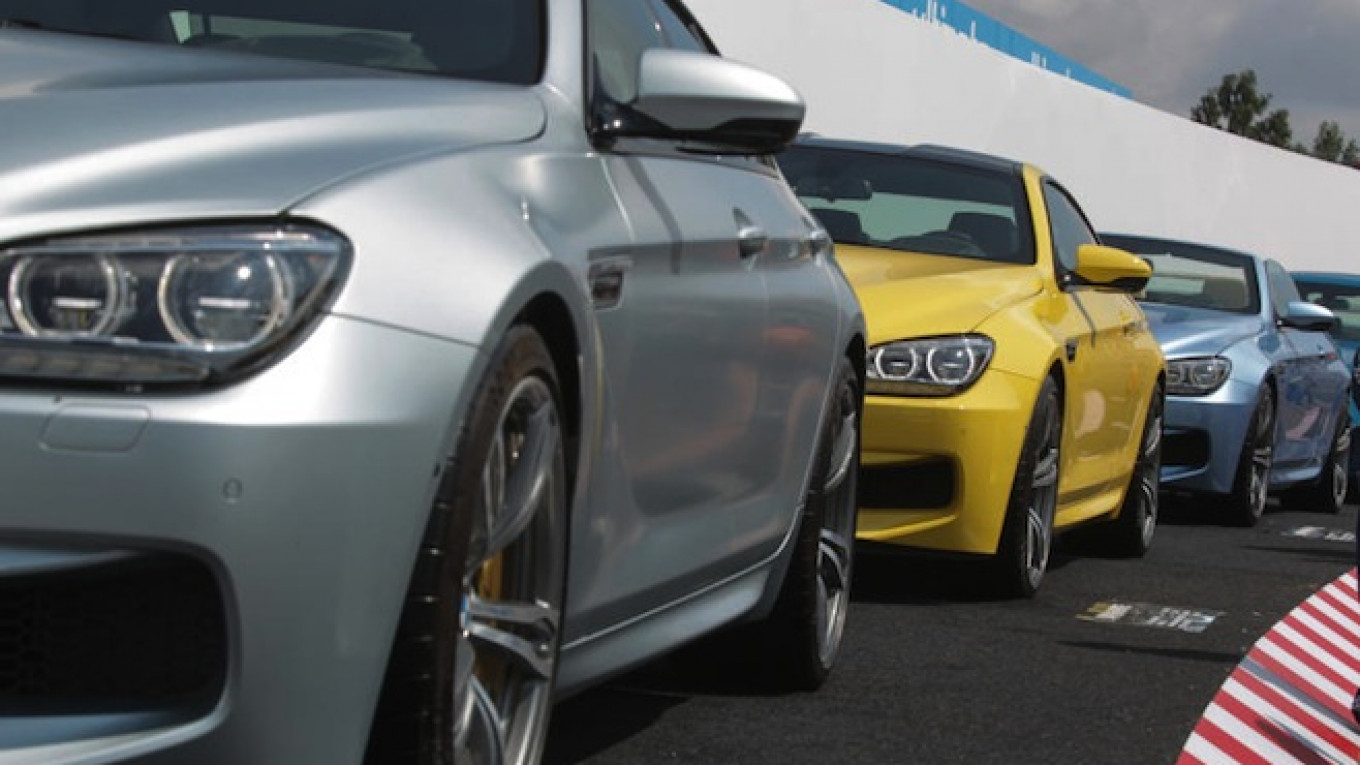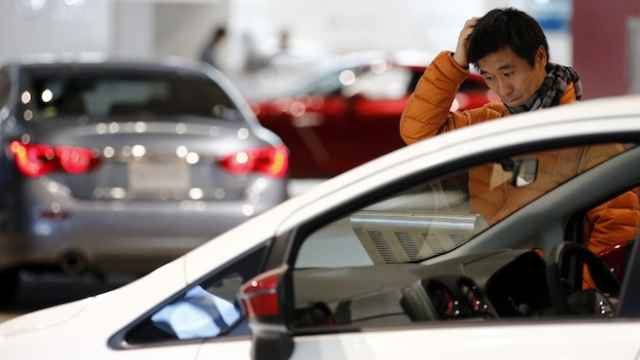Russian car sales could fall by 25-35 percent this year and sales of imported cars may slump by 55 percent, accounting firm PricewaterhouseCoopers said Monday, underlining the impact of an economic crisis and a ruble devaluation.
The boom years for foreign car sales following the car market in Russia has shrunk as the economy weakened under the weight of lower oil prices and Western sanctions imposed on Moscow over the Ukraine crisis.
Consumers have mostly put off large purchases, although in December hundreds of Russians rushed to buy cars and other durable goods to spend their rapidly devaluing rubles before prices rose. The ruble fell more than 40 percent last year.
The Association of European Businesses (AEB), a lobby group, said sales of cars and light commercial vehicles fell 24.4 percent in January, year-on-year, after rising 2.4 percent in December.
"If December was a big party for many market participants, then January is the equivalent to a bad hangover," said Joerg Schreiber, chairman of the AEB Automobile Manufacturers Committee, saying that 2014 model year stocks were mostly sold.
"At the same time, responding to currency movements, prices for the new model year have increased, much more than usual. The price transformation of the market is something still in process, so the headache will rather get worse before going away eventually," he said in a statement.
Sweden's Volvo said on Friday it was halting production at its plant in the city of Kaluga — the latest foreign firm to show concern about the situation.
PwC said the geopolitical situation, the oil price, the ruble rate, lending conditions and state support would be the main factors influencing sales this year, which could reach 1.52 million to 1.75 million units, compared to 2.34 million in 2014.
Russian cars would suffer the least, falling 10 percent, followed by foreign cars assembled in Russia, which would see a 33 percent fall. Imported cars would fall 55 percent next year, PwC added, suggesting the ruble decline would encourage more firms to localize their production in Russia.
Earlier this year, the AEB said that passenger car sales could drop more than 24 percent, with some automakers seeing that forecast as optimistic.
A Message from The Moscow Times:
Dear readers,
We are facing unprecedented challenges. Russia's Prosecutor General's Office has designated The Moscow Times as an "undesirable" organization, criminalizing our work and putting our staff at risk of prosecution. This follows our earlier unjust labeling as a "foreign agent."
These actions are direct attempts to silence independent journalism in Russia. The authorities claim our work "discredits the decisions of the Russian leadership." We see things differently: we strive to provide accurate, unbiased reporting on Russia.
We, the journalists of The Moscow Times, refuse to be silenced. But to continue our work, we need your help.
Your support, no matter how small, makes a world of difference. If you can, please support us monthly starting from just $2. It's quick to set up, and every contribution makes a significant impact.
By supporting The Moscow Times, you're defending open, independent journalism in the face of repression. Thank you for standing with us.
Remind me later.






